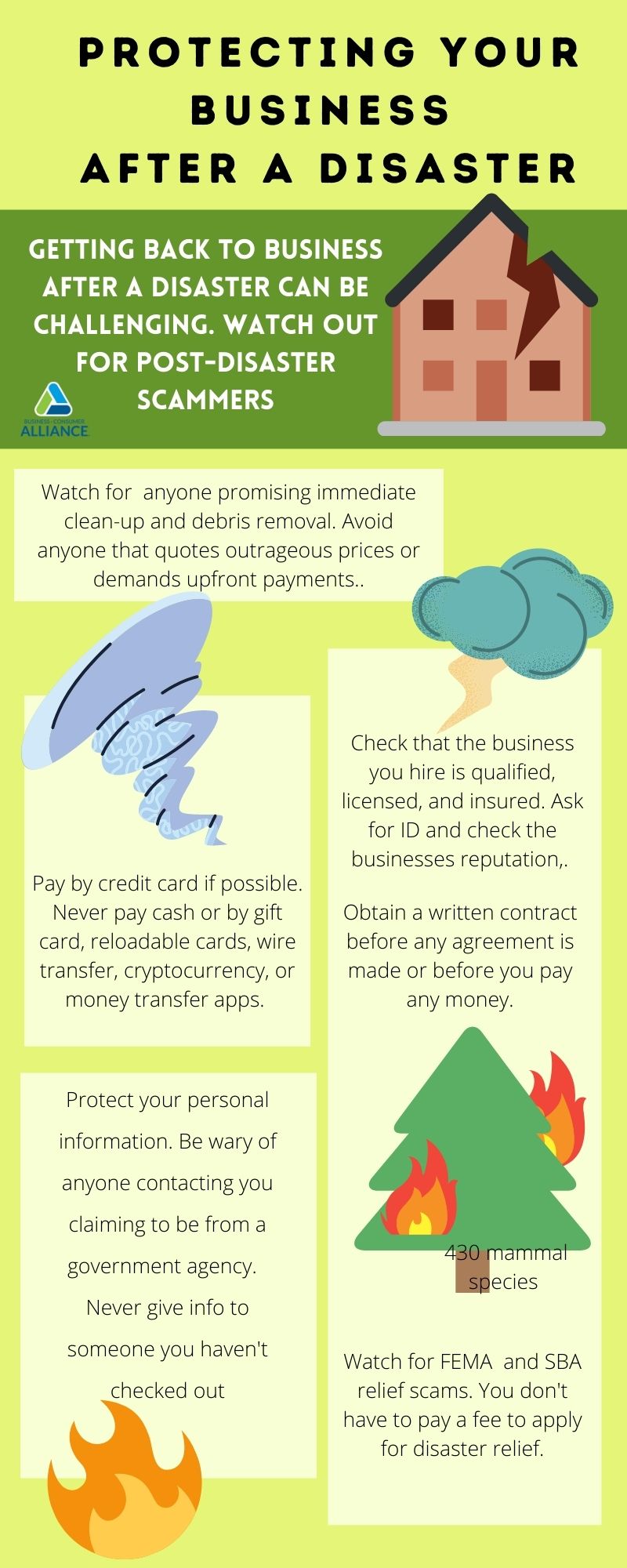
Wildfires, hurricanes, floods, tornados, and other disasters often leave properties destroyed. While rebuilding and repairs are a top priority for those left recovering from a disaster, unscrupulous scammers are ready to take advantage. Business owners and any survivors looking to rebuild and repair need to be cautious. Here are some common characteristics to spot a disaster scam.
Signs of a Disaster Scam
After a disaster scammers often appear in the neighborhood claiming to be working in the area offering clean-up and removal services. Watch for anyone quoting outrageous price quotes to do work. Here are some other signs of a scam:
- Up-front payment demands or a demand for final payment before work is completed.
- Only payment methods accepted are cash, wire transfer, gift card, cryptocurrencies, or peer-to-peer payment apps.
Watch for imposters posing as Federal Emergency Management Agency (FEMA) representatives or government officials who charge a fee to apply or qualify for financial assistance. Be aware that con artists often use spoofing to make it appear that they are official. Government officials do not call, email, or text requesting financial and sensitive personal identity information.
Other scammers act as insurance agents to try and get personal information to commit fraud. Beware also of scammers posing as charities seeking disaster relief donations.
Steps to Rebuild the Right Way
It is important to hire someone that is reputable and skilled. If your state requires contractors to be licensed verify the business or individual is licensed and insured. Ask for the contractor’s ID, license, and proof of insurance.
Get at least three bids from reputable companies. Check reviews, reputation reports, and past experience before hiring anyone. Avoid anyone using high pressure tactics or that tries to rush you into an agreement.
Never give financial or personal information to anyone or agree to pay unless you have verified that they are legitimate. Don’t give your insurance policy number or coverage details to anyone that you are not contracted with.
Contact your local building department to determine the proper procedure for rebuilding and debris cleanup. Always get a written agreement before any work starts or payment is made. Make sure the proper permits are obtained for the job.
Where to Get Help
If you suspect fraud, you can report it to FEMA , the Federal Trade Commission, Department of Homeland Security's Office of the Inspector General, or the Department of Justice (DOJ) Fraud Hotline. You can also file a report with your local authorities.
Check out the infographic “Protecting Your Business After a Disaster”. Make sure to share this information with others so they can avoid falling victim to a scam.

Follow Business Consumer Alliance on Facebook for scam alerts, tips, consumer topics, and more.